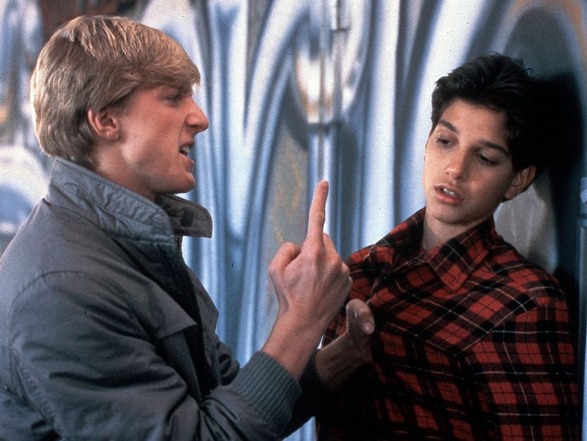F**k your feelings.
Yeah, you read that right. You may have seen this 2020 campaign slogan for Donald Trump on a t-shirt, yard sign, or flag.
The 2016 election ushered in the most profane president in the United States’ history, drastically altering the dynamics of the media and the political stage.
Trump claims he swears “as a way of emphasis.” It is really a political ploy for attention. While vulgarity might give him attention, it is irreparably damaging the presidential office.
Recently, Trump said, “If you don’t support me, you’re going to be so ***damn poor,” and “[Joe Biden] understood how to kiss Barack Obama’s a**.”
On Rush Limbaugh’s live radio show he said, “If you [Iran] f*** with us, …we are going to do things to you that have never been done before.”
He also called the impeachment inquiry “BULL****.” In fact, Trump has publicly said “bull****” 12 times in the last 9 months.
Not coincidentally, last week at a local Holland youth group, a man picking up his daughter had a flag emblazoned with Trump’s campaign slogan “Trump 2020, No More Bull****” on his motorcycle.
Historically, presidents have never publicly used profane language. That ‘s not to say they didn’t swear in private. On the contrary, former president Richard Nixon swore, but never on television. Even Abraham Lincoln, arguably the country’s most upright president, told dirty jokes, but not in front of millions of people.
Social media has pushed politicians further into the spotlight, blurring the lines between their professional and private lives. No previous president has embraced social media the way President Trump has. However, Trump (and his Twitter account) cannot escape the fact that what is right is not always popular, and what is popular is not always right.
Regardless, Trump is entitled to his freedom of speech, right? Not always.
While the First Amendment does guarantee freedom of speech to citizens, it does not protect profanity in public settings such as public schools and in front of public employers.
If public school students are punished with detention when they are caught using profanity, why is the president rewarded with applause for using the same words on national television?
Regardless of whether or not Trump swears “legally,” Americans are suffocating from the onslaught of his toxic “free speech.”
Trump’s profanity use comes with repercussions. C-SPAN broadcast a speech in July with the disclaimer “The president used language that some might find offensive.” They felt compelled to warn young viewers.
Thanks to Trump, readers of magazines and newspapers, including The New York Times, may encounter the word “****hole”. It was unimaginable, just a few years ago, that news outlets would have to add disclaimers or relax their journalistic standards in order to report on the speeches of the President of the United States.
In normalizing vulgarity and inappropriate language, Trump is tarnishing the presidential office. In addition to profanity, he frequently engages in name-calling, retweeting others’ vulgar posts, and disseminating misinformation.
Though society increasingly accepts more coarse language, the office of the President of the United States should be held to a higher standard than common culture.
The president should serve as the ultimate role model for American citizens and should therefore act accordingly. As such, the office should be held to a higher standard than someone on reality TV.
Of course, Trump would not know the difference, having once hosted The Celebrity Apprentice.
To quote journalist Savannah Guthrie from the latest town hall meeting on October 15, President Trump is not “just some crazy uncle who can retweet whatever; [he is] the President of the United States.”
Trump’s speech and actions have harmed the office’s reputation, and have damaged the country’s reputation on the world stage, but that damage can be undone. In less than two weeks, American voters have the opportunity to choose a president who cares less about ratings, and more about what’s right.







